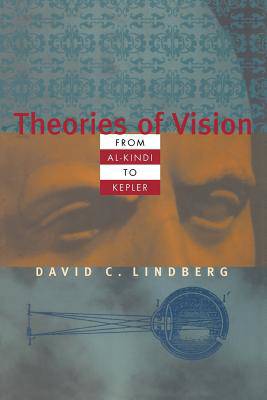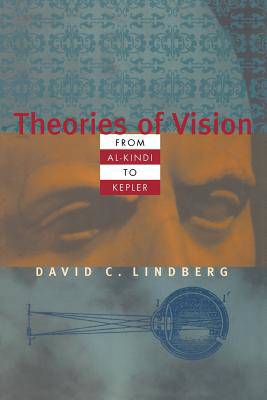
Bedankt voor het vertrouwen het afgelopen jaar! Om jou te bedanken bieden we GRATIS verzending (in België) aan op alles gedurende de hele maand januari.
- Afhalen na 1 uur in een winkel met voorraad
- In januari gratis thuislevering in België
- Ruim aanbod met 7 miljoen producten
Bedankt voor het vertrouwen het afgelopen jaar! Om jou te bedanken bieden we GRATIS verzending (in België) aan op alles gedurende de hele maand januari.
- Afhalen na 1 uur in een winkel met voorraad
- In januari gratis thuislevering in België
- Ruim aanbod met 7 miljoen producten
Zoeken
Omschrijving
Kepler's successful solution to the problem of vision early in the seventeenth century was a theoretical triumph as significant as many of the more celebrated developments of the scientific revolution. Yet the full import of Kepler's arguments can be grasped only when they are viewed against the background of ancient, medieval, and Renaissance visual theory. David C. Lindberg provides this background, and in doing so he fills the gap in historical scholarship and constructs a model for tracing the development of scientific ideas. David C. Lindberg is professor and chairman of the department of the history of science at the University of Wisconsin, Madison.
Specificaties
Betrokkenen
- Auteur(s):
- Uitgeverij:
Inhoud
- Aantal bladzijden:
- 331
- Taal:
- Engels
- Reeks:
Eigenschappen
- Productcode (EAN):
- 9780226482354
- Verschijningsdatum:
- 22/04/1996
- Uitvoering:
- Paperback
- Formaat:
- Trade paperback (VS)
- Afmetingen:
- 148 mm x 238 mm
- Gewicht:
- 462 g

Alleen bij Standaard Boekhandel
+ 118 punten op je klantenkaart van Standaard Boekhandel
Beoordelingen
We publiceren alleen reviews die voldoen aan de voorwaarden voor reviews. Bekijk onze voorwaarden voor reviews.









